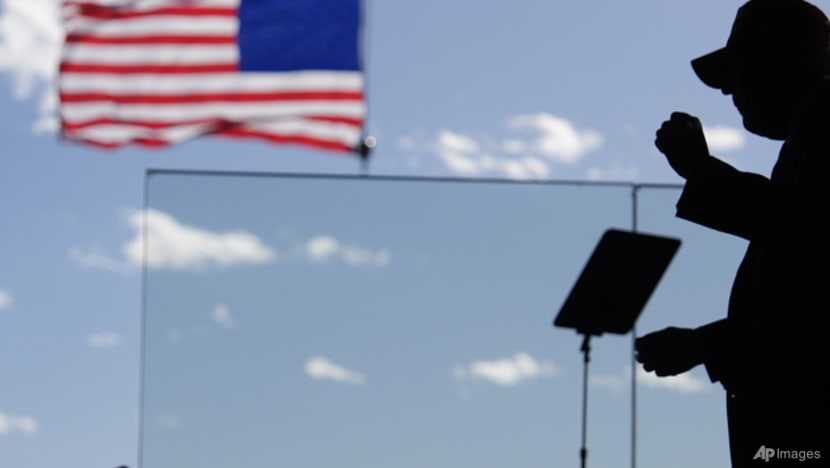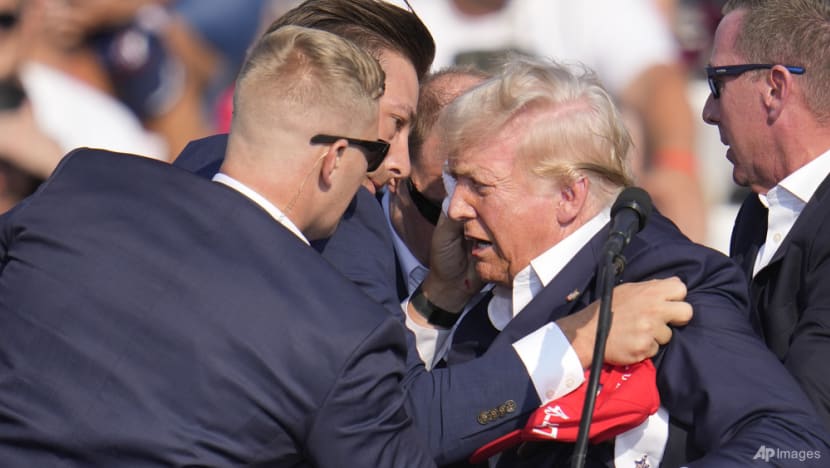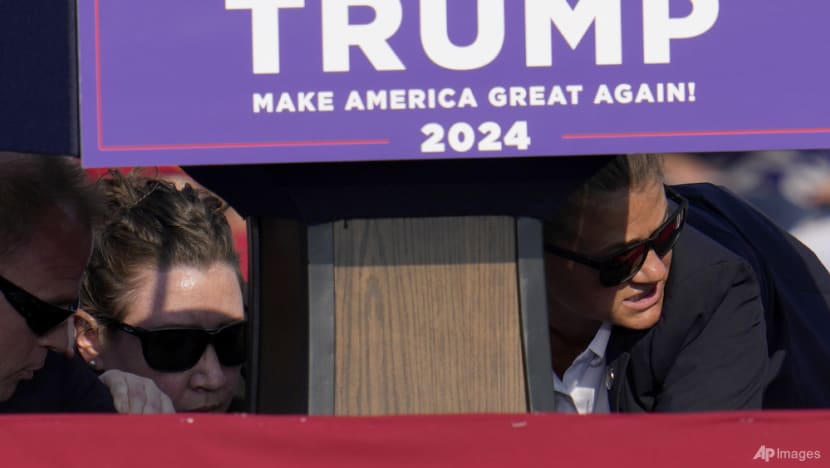Snap Insight: Trump assassination attempt may have just won him the US presidential election
Former US president Donald Trump's shooting at a campaign rally will almost certainly deepen the perception of his MAGA base that they are under siege, says professor of political science Robert Kelly.


This audio is generated by an AI tool.
BUSAN: In a shocking moment, even for American politics, a gunman tried to assassinate former United States president Donald Trump at a political rally in Pennsylvania on Saturday (Jul 13). It left one attendee dead, two injured and Trump slightly wounded.
This may be the moment remembered for winning Trump the presidential election in November. The image of Trump emerging, fist in the air, blood on his face, could well seal the deal.
The shooter, now identified as 20-year-old Thomas Crooks, appears to be a registered Republican who wore a T-shirt for a right-wing gun website. This casts doubt on an ideological explanation for the shooting. At the moment, this does not appear to be left-wing terrorism against the former president.
The good news is that US political assassination attempts are rarely conspiracies or coups d’etat. Attempts - such as those of John F Kennedy in 1963 and Ronald Reagan in 1981 - were committed by mentally disturbed loners.
There has been no follow-on political violence since yesterday. Trump will likely return to the campaign trail.
MAGA VOTERS UNDER SIEGE
But the shooting will almost certainly deepen the perception of his MAGA (Make America Great Again) base that they are under siege and fighting to recover the country from interlopers. Trump’s fan base is also where gun ownership is most clustered in America.
The shooting will also stoke fears of violence around Election Day on Nov 5, should Trump lose and declare the election was stolen. In March, he claimed that a “bloodbath” would follow if he lost in November.
Trump has a history of calling for his voters to gather in demonstrations, which frequently provokes counter-demonstrations. This has led to street violence in the past, and the potential for a major rupture over the election is clear.
Trump’s re-election campaign particularly has featured regular, extreme rhetoric, including veiled threats of force.
Just this month, Trump suggested his political opponents face military tribunals while an ally hinted at violence if the left opposed Trump’s “second American revolution”. Trump has also downplayed the violence at the US Capitol on Jan 6, 2021, where a mob sought to keep him in power after his electoral loss in the 2020 presidential election.


WILL THERE BE MORE RESTRAINT?
Perhaps this shooting will shock Trump enough to tamp down his rhetoric.
Ideally, he and his followers will emerge more restrained, after learning what that sort of language unleashes. Anger has turned into votes, but political anger can also lead to all sorts of unexpected outcomes.
Saturday’s shooting both reflects and worsens America’s current, severe polarisation.
The country is politically riven between right and left in a way not seen since the north-south split before the Civil War in the nineteenth century. America’s Democrats have argued in response that no less than US democracy itself is on the ballot. Tension is high.
POLITICAL MARTYR
The more likely political outcome though is that Trump emerges as a martyr to his voters and wins the election.
Trump is already leading in most polls. His campaign will relentlessly market his survival as a moment of strength, at a time when his opponent President Joe Biden’s fitness to hold office is being questioned after several high-profile gaffes.
Even though Trump survived, political violence like this will worsen the perception that American institutions are failing and that dysfunction is endemic. And that sense of rising chaos works in Trump’s favour, as both a beacon of law and order and a breaker of a corrupt system.
Robert Kelly (@Robert_E_Kelly) is a professor of political science at Pusan National University.
Editor's note: Incorrect information about the last three attacks against US presidents has been amended in this commentary. We apologise for the error.
















